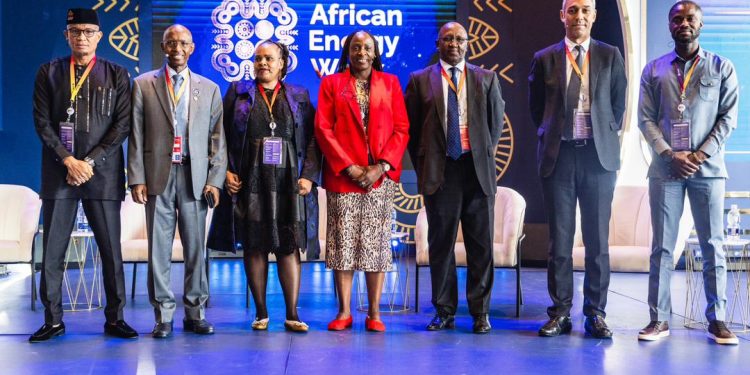The African Refiners and Distributors Association (ARDA) has called on 54 African nations to end the dollarisation of petroleum products and to develop integrated infrastructure to ensure energy security independent of developed countries, which will help stabilize their economies.
Speaking at the African Energy Week in Cape Town, South Africa, ARDA President Dr. Mustapha Abdul-Hamid also urged a halt to crude oil exports from Africa, arguing that the continent is not yet meeting its energy security needs amid a growing population.
He emphasized that reducing reliance on foreign currencies for energy transactions could help stabilize economies, lower energy import costs, and foster long-term energy security.
Dr. Abdul-Hamid, who is also the Chief Executive of the National Petroleum Authority (NPA), stressed the importance of refining and utilizing Africa’s own resources instead of exporting raw crude oil and re-importing refined products. “Nobody puts crude oil in their vehicle or airplane—everything that generates movement and wealth is a refined product. This highlights the need for closer collaboration between Africa’s upstream and downstream sectors to fully benefit from our natural resources,” he said.
To promote energy independence in Africa, Dr. Abdul-Hamid proposed a three-tier strategy focusing on policy harmonization, infrastructure integration, and the adoption of a regional currency. He pointed out the significant disparities in fuel specifications across the continent, which create barriers to trade and limit cooperation.
For example, Ghana has a fuel sulfur limit of 50 parts per million (ppm), while several neighboring West African countries allow levels between 1,500 and 3,000 ppm, complicating imports.
“Without harmonized specifications across Africa, trade within the continent remains challenging, hindering effective collaboration,” Abdul-Hamid noted. He emphasized the need for cooperation among regulatory bodies, national oil companies, and governments to create a unified approach to energy production and distribution. Initiatives like Ghana’s policy requiring the use of locally refined fuel for oil extraction machinery can bolster domestic refinery output.
Dr. Abdul-Hamid also advocated for a regional currency to reduce Africa’s dependence on the U.S. dollar. “Currently, oil marketers in Ghana need $400 million each month to import refined petroleum products, which puts constant pressure on the Ghanaian Cedi. Establishing a shared currency within regional blocs like West Africa could alleviate this pressure and strengthen our economies,” he suggested.
Omar Farouk Ibrahim, Secretary General of the African Petroleum Producers Organisation (APPO), emphasized the need to build robust infrastructure within Africa to lessen dependency on foreign markets.
He warned that reliance on imported resources makes African countries vulnerable to international sanctions and supply disruptions. “We have vast resources on our continent, yet we often depend on imports for energy. Partnering with neighboring countries to build the necessary infrastructure can secure our energy needs,” he said, stressing the importance of intra-continental infrastructure development for achieving true energy security.
Riverson Oppong, Chief Executive of the Association of Oil and Gas Marketing Companies, highlighted the paradox of Africa exporting raw resources while lacking refined products for domestic use. He pointed out that nearly 90 percent of Africa’s crude production is exported. “We have the resources, but we lack access to them because we are caught in a cycle of exporting raw materials and re-importing finished products. This cycle undermines our economic stability and weakens our energy security,” Oppong noted.
He questioned the logic behind exporting crude oil only to re-import it as refined products, arguing that this practice harms local refineries and raises costs.
“During a recent visit to Morocco, I saw a refinery capable of processing 550,000 barrels per day sitting idle like a ‘white elephant.’ Why are we sending our crude oil to Europe for refining only to bring it back to Africa at a premium?” he asked. Oppong urged African countries to invest in domestic refining capacity and support local refineries to enhance energy self-sufficiency.


